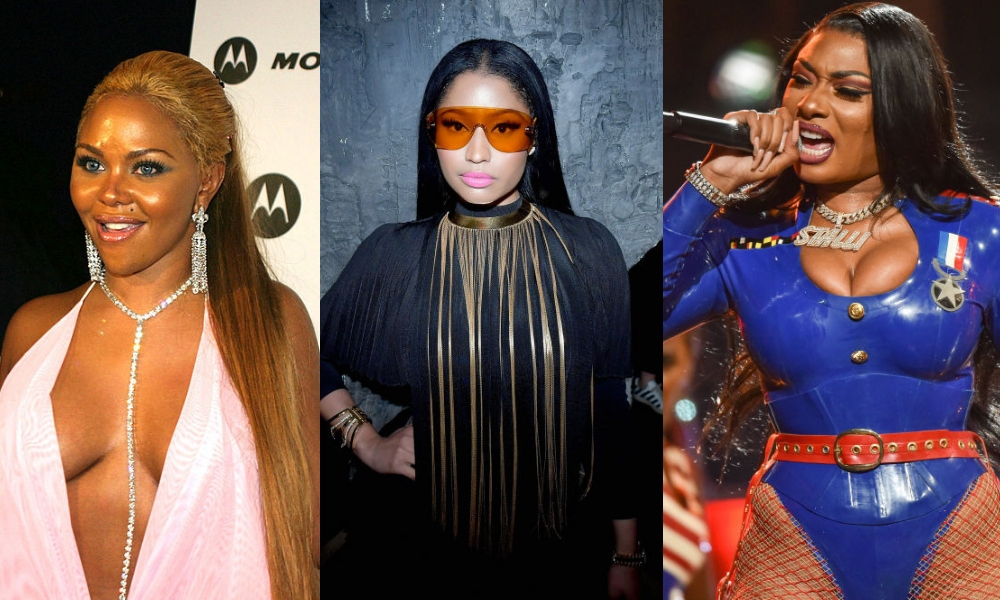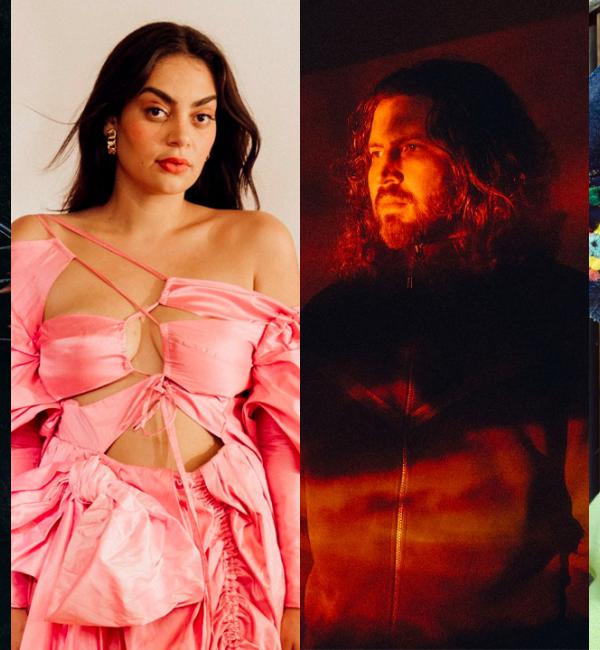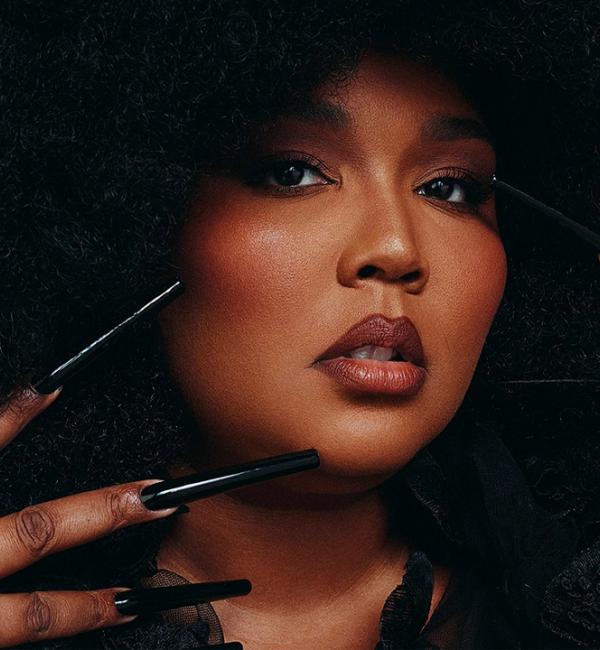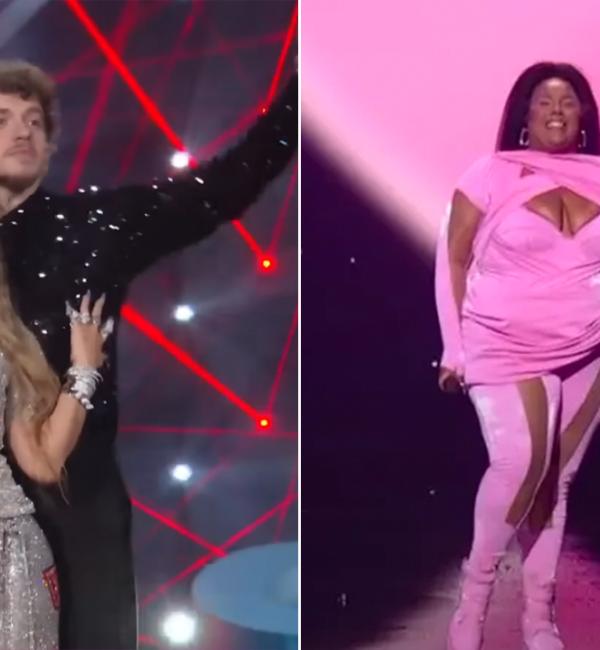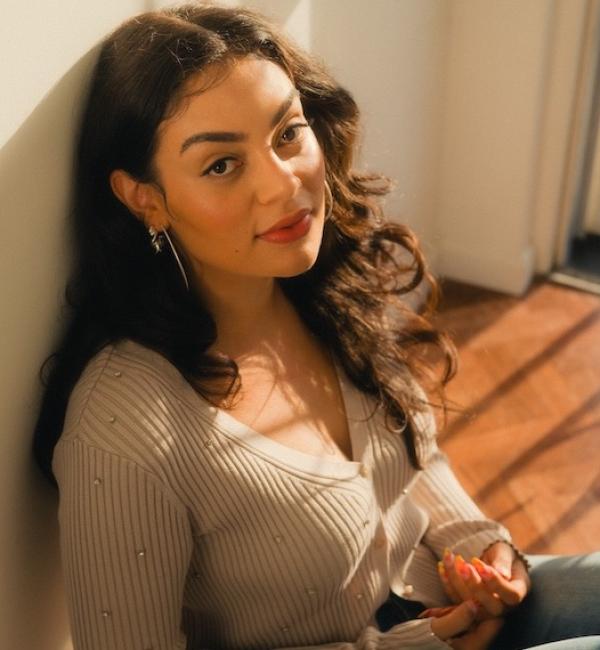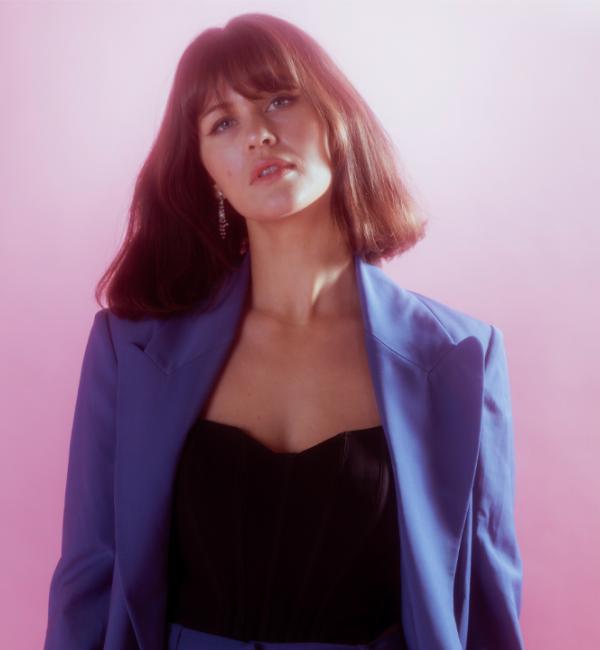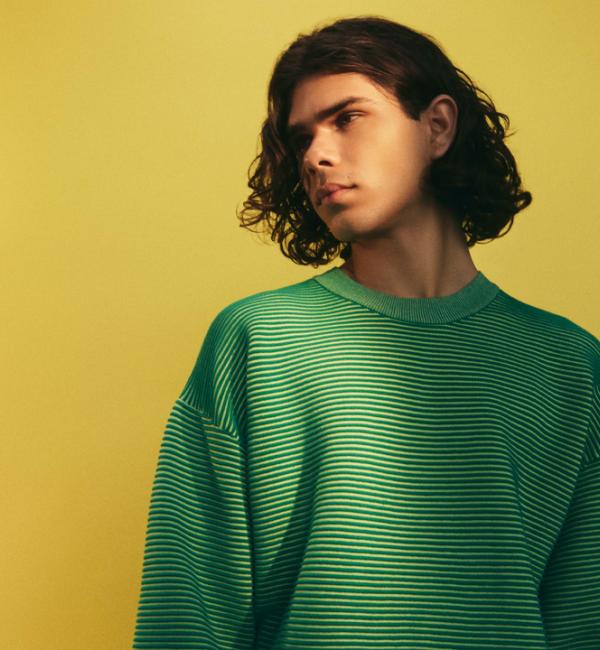
We're focusing on rap this week to celebrate the launch of our new Sydney club night, RAP SZN. Check out the event here and follow us on Instagram here.
Not since the days of Queen Latifah, Salt 'N' Pepa and Da Brat have we seen this many women dominating hip-hop. But hip-hop began as a veritable boys club. Characterised by braggadocio and masculinity, the genre's formative years were dominated by male artists, who surmised that "women ain't shit but hoes and tricks".
One woman who made a point to fight against the inherent sexism of the burgeoning genre was Yolanda Whitaker, better known as Yo-Yo. In the '90s, the rapper became a tenant of female empowerment and commanded respect from her peers. While working with Ice-Cube in 1993 on The Bonnie and Clyde Theme Yo-Yo made a point that she would not be called a 'bitch.'
Women were made to fight for their place in hip-hop and in the late '80s and early '90s, the genre saw the likes of Bahamadia, Foxy Brown, Lauryn Hill, and Missy Elliott rise to prominence despite their setbacks. Songs like U.N.I.T.Y. and Push It proved to record label executives that women were just as marketable as men. Then, Lil' Kim changed everything.
Bold, exuberant and irreverently frank Lil' Kim's confidence in her own sexuality shook the entire industry. For hip-hop fans, she signalled a bright future but she was about to be used as a pawn in a narrative that would affect the genre for years to come.
Kim and her friend and fellow rapper, Foxy Brown rose in tandem in 1997. They were both from Brooklyn, went to the same high school, released solo records a week apart in 1996 and then appeared on the cover of The Source together a few months later. A collaboration seemed like the next step for these two strong women but when it never happened, tensions began to rise.
No one knows the origins of the history-making feud. Although a former editor-in-chief at The Source, Kim Osario once heard that, "one had borrowed the outfit from the other and that led to them not speaking.” The musical slights began in 1999, when Puff Daddy let loose on a song with Lil Cease and Kim, rapping: “Stop tryin’ to sound like her too, bitches." It was widely agreed to be a reference to Foxy.
Sneak disses filled tracks and shots were fired from both parties. The feud was being reported on extensively as a catfight between the two biggest women in hip-hop. Which begged the question — is there enough room for more than one woman at the top?
We've sadly seen this story play out time and time again. First with Lil' Kim and Foxy Brown, then with Lil' Kim and Nicki Minaj, and most recently between Minaj and Cardi B. Despite this, most female rappers have realised that there is more room at the top than they were first made to believe. While Cardi has opted to bow out of the feud with her fellow New York rapper, she's since made a concerted effort to collaborate with other women, including Miami duo City Girls with their song, Twerk.
Now there is a new guard of female rappers ditching that old, dusty attitude and gunning for that top spot, together.
Earlier this year, just as Cardi B was taking a social media break to focus on her new baby, rumours began to circulate that beef was brewing between her and upcoming Houston rapper, Megan Thee Stallion. This was ignited by a tweet by the Bronx rapper, which read, “Ain’t no hoe taking my spot. Stop BAPPIN."
Many thought this was directed at Megan, although before anything could come of it, she shut down any semblance of a looming fight. "If you’re a real hottie, please spread positivity," Megan wrote on Twitter. "We real around here and we fw everybody that fw us [sic]. No dry hating no dry beef."
Megan has continued to be a tenant of positivity and female empowerment, frequently seen hanging out and working with other female rappers, including Trina and Kash Doll. "You know how many men make music without biting each other’s heads off? Why do we have to do that?" Megan asked in a recent interview with i-D. "There’s room for everybody. I really couldn’t care less what the next girl’s doing. If she’s shining, that’s good. It’s not taking away from my light."
Prior to hitting the stage at the BET Awards Pre-Show, the Texan rapper stopped by The Cruz Show on REAL 92.3 where she was asked to share her top five female rappers. Without hesitation, she mentioned Lil' Kim and Foxy Brown in the same breath.
Megan's dismissal of the singular model for success doesn't exist in a vacuum. Other rappers are getting involved and share the Houston hottie's position. Rico Nasty and Doja Cat recently came together on the song, Tia Tameria. "I love Rico so much artistically that of course, I wanted her on a song with me," said Doja Cat in an interview with Respect Magazine. "I didn’t get her on the song just because she’s a girl. It’s more so about the fact that she is fantastic, and I love her."
Just two months ago, Lizzo became only the sixth female rapper to score a #1 hit on the Billboard Hot 100, and she’s the first to do so in two years. The first female rapper to make it to the top was Lauryn Hill with Doo Wop (That Thing) making history back in 1998. This was followed up by Lil' Kim when she topped the charts alongside Christina Aguilera, Pink and Mya with their stunning remake of Lady Marmalade.
Women have been fighting for their collective success for over 20 years. None of these rappers enter the industry hell-bent on cutting each other down but are often cornered into "catty" narratives designed to sell records rather than nurture their long-term success.
UK rapper Lady Leshuur confessed that's exactly what happened to her. After going viral with a parody video of Chris Brown and Busta Rhymes's Look At Me Now on YouTube, she was contacted by a major label in the US. “They flew me out and we had a conversation, but their idea was that they were going to pit me against Nicki Minaj," she told The Guardian. "It was like: ‘She’s the biggest female MC and you need to take her down,’ and I wasn’t feeling that at all. That whole stereotype of female rappers and their supporters having to compete with each other – it seems to be a crime to be a fan of two female rappers that are successful. So I turned it down." Leshurr admits she cried on the flight home.
As artists push back, the industry is forced to make more room at the top. This means more stories are being told, more voices are being heard and most importantly more women are being recognised in hip-hop than ever before. Finally.
